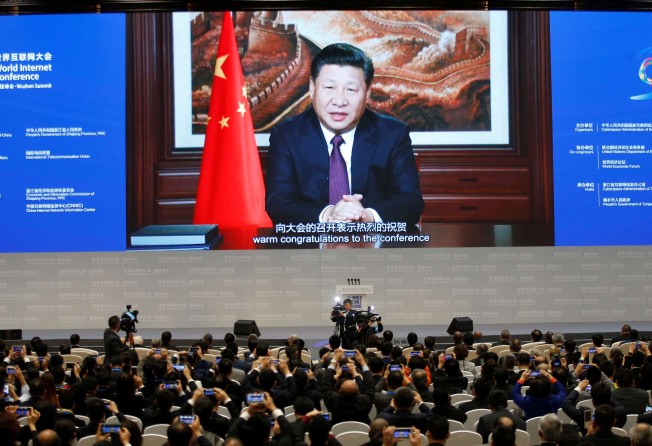
China: No 1 enemy of internet freedom or the global champion of online technology?
Cary Huang says while Beijing is desperate to tap the internet for economic growth, it is waging a war to control its open nature. In the end, it will succeed in neither

Nothing better proves China’s communist leaders’ psychological ambivalence in policymaking than their treatment of the internet industry.
No other country has shown greater enthusiasm in developing this new industry. The Chinese leadership sees it as a new engine of growth, even introducing an Internet Plus plan last year to foster development of related industries.
Indeed, China has made great strides in the application of new technology. The world’s most populous nation and second-largest economy now also has the world’s largest army of internet users – 700 million, accounting for a quarter of the world’s total – and smartphone users – 563 million. China is also home to a host of world-beating internet companies, with Alibaba, which owns the South China Morning Post, Tencent, Baidu and JD.com ranked among the world’s top 10.

Arguably, given its meteoric rise to global economic and political influence, it is fitting for China to be leading the internet revolution and contributing to the governance of cyberspace. China’s launch of the annual World Internet Conference, which it hosted for the third time earlier this month in the sleepy town of Wuzhen, Zhejiang (浙江), signals such intent.
Chinese leaders want the conference to be the Davos of the internet world; they want to compete with the West in defining the norms of cyberspace.
But the rest of the world is not buying it. Critics say Beijing’s advocacy of “cyber sovereignty”, which argues that governments have the right to regulate the internet as they wish, is merely intended to legitimise China’s suppression of the free flow of information and free speech.
Despite the global and open nature of the internet, the Chinese government has spared no effort in blocking the free flow of information across its borders through the “Great Firewall of China”, its colossal internet filtering and censorship apparatus.
It has also imposed some of the world’s most draconian restrictions online. The round-the-clock, cat-and-mouse-like guerilla warfare in online platforms such as Weibo and WeChat, between the millions of Chinese internet users and the country’s two million-strong army of online censors, makes a battlefield of Chinese cyberspace.
Watch: China gets a new cyber censor-in-chief
Beijing locks global giants such as Google, Twitter, Facebook, YouTube and Instagram out of the country. The government also blocks major global news sites, including the South China Morning Post.
On November 15, on the eve of the Wuzhen gathering, the Washington-based Freedom House ranked China dead last in internet freedom in its annual Freedom on the Net report, saying the country was the world’s “worst abuser of internet freedom”, for the second straight year. Reporters without Borders named China a “state enemy of the internet”.
China’s leaders are confronted with a dilemma in this age of information. On the one hand, internet-based technologies offer enormous potential for the country’s economic growth; on the other, the free flow of information is seen as posing a dire threat to China’s authoritarian system of one-party rule, which traditionally relies on censorship and indoctrination as tools of control.
So Beijing responds by playing a dual role – as the world’s most powerful force to both propel and obstruct the development of the internet industry.
In the end, leaders will find that their confused policy will be detrimental to China’s overall economic development and social progress, as well as to the healthy development of the internet industry.
Cary Huang is a senior writer at the Post